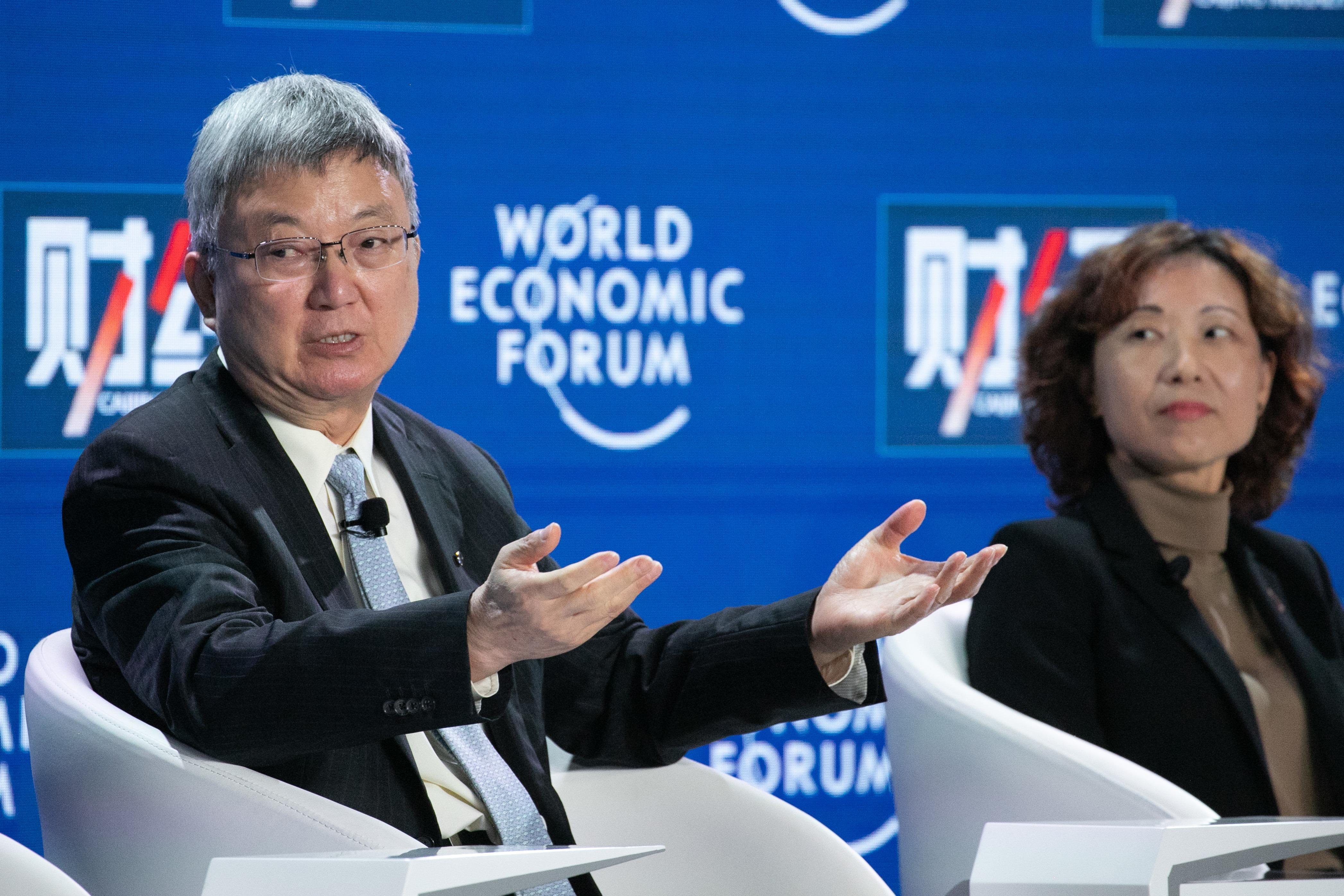Speakers: Nation should focus on digital, sustainable development
 Zhu Min (left), vice-chairman of the China Center for International Economic Exchanges, at the 14th Annual Meeting of the New Champions in Tianjin on Thursday. (PHOTO PROVIDED TO CHINA DAILY)
Zhu Min (left), vice-chairman of the China Center for International Economic Exchanges, at the 14th Annual Meeting of the New Champions in Tianjin on Thursday. (PHOTO PROVIDED TO CHINA DAILY)
China needs to steadily advance structural reforms to propel high-quality growth instead of simply rolling out massive stimulus measures, and the focus should be placed on boosting digital and green development, said speakers at the 14th Annual Meeting of the New Champions, also known as Summer Davos Forum, in Tianjin on Thursday.
Zhu Min, vice-chairman of the China Center for International Economic Exchanges, told a forum on Thursday that the rebound of consumption and the property sector was weaker than anticipated, pointing to a major structural hurdle that must be overcome.
Meanwhile, Zhu said he believes that the real estate issues will not develop into systemic risk, saying the property sector will go through long-term structural change.
Facing pressure from a cloudy global outlook and geopolitical issues, he said the key lies in how China deals with these issues, saying that foreign trade may not have a strong cyclical rebound.
Looking ahead to the full year, Zhu said policies will be more structured in terms of spurring consumption. More efforts should be made to ensure incomes grow faster than the GDP this year, continue to improve social safety nets in terms of pensions and accelerate urbanization across China.
He highlighted the importance of creating new growth points, saying the focus should be placed on fields including manufacturing digitalization and carbon neutrality transformation.
The National Bureau of Statistics said year-on-year growth in investment, production and consumption all slowed from the previous month in May.
The country's industrial output grew 3.5 percent in May from a year earlier after a 5.6 percent rise in April, and fixed-asset investment increased by 4 percent year-on-year in the January-May period versus a 4.7 percent rise for the January-April period. Meanwhile, retail sales surged 12.7 percent year-on-year last month, but were down from 18.4 percent in April.
Against such a backdrop, Eswar Prasad, a professor of trade policy at Cornell University in the United States, said that China is now a $19 trillion economy at market exchange rates, and it is hard to envision an economy of such size and complexity continuing to deliver 8 percent to 10 percent growth. "But even if China delivers modest growth, it is important to keep in mind that for the world economy, it is important that China grows, but also how it grows."
He said at the same forum that China has made considerable progress in terms of rebalancing its economy, relying less on heavy investment-led manufacturing growth and trying to move up the value chain.
When it comes to the pressures and challenges facing the broader economy, he said China needs to have a better financial system that allocates resources in a way that is much more efficient for the most productive parts of the economy, which will generate both short-term and long-term growth.
Looking forward, he said the focus should be placed on boosting confidence of the private sector, and suggested a combination of short-term macroeconomic stimulus in terms of both fiscal and monetary policies.
Given the low comparison base of the previous year, Peng Sen, president of the China Society of Economic Reform, said at another forum on Thursday that China's second-quarter performance will be notably better than the first quarter, followed by steady growth in the third and fourth quarters.
He also said China's potential growth rate is above 6 percent, attributing the recent hiccup to the blow of the COVID-19 pandemic as well as various factors amid the sluggish international investment and trade environment.
In the long run, Peng said more efforts should be made to further boost development of the real economy, support the private sector and expand high-level opening-up.


